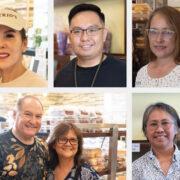The 2020 Census is underway with only two years left to go, and for Asian Americans and other minority groups, the upcoming census is being seen as either an opportunity for being accurately counted, or a chance at being misrepresented.
On Monday, March 26, the U.S. Department of Commerce announced that the upcoming 2020 census to take place on April 1, 2020, will include a question on citizenship. This, after the Department of Justice in December requested that the census include the question to help administer the Voting Rights Act (VRA).
“Having citizenship data at the census block level will permit more effective enforcement of the VRA [Voting Rights Act], and Secretary [Wilbur] Ross determined that obtaining complete and accurate information to meet this legitimate government purpose outweighed the limited potential adverse impacts,” read a statement by the Commerce Department.
But many are worried the question will prompt people to opt out of participating, thus rendering an incomplete picture of their communities in the U.S. Central to worries are the current political and racial climates that have many immigrants wary of disclosing any personal information.
The decennial census looks to find population changes and other information of who makes up the United States — citizens and non-citizens alike. More importantly, it uses the derived data to address the nation’s needs, like determining representation of each area in the U.S. House of Representatives.
Questions regarding citizenship on the decennial census have not been asked in the past 70 years and those against the question say that no reason for it to be added now has been provided.
“Immigrants and citizens who have immigrants in their household will be reluctant to participate in a census that asks about citizenship,” said legal and civil rights organization, Asian Americans Advancing Justice, Los Angeles (AAJC) in a statement.
It added, “The administration is trying to sabotage the 2020 Census with the addition of a citizenship question that it knows will chill participation by communities that the administration seeks to marginalize.”
Democratic National Committee spokesperson Vedant Patel described the announcement in a statement as an attempt by U.S. President Donald Trump and his administration to “silence the voices of millions immigrants, including Asian Americans and Pacific Islanders — who are the fastest-growing immigrant group in the United States.”
AAPIs are currently the fastest-growing community in the nation, growing 72 percent between the years 2000 and 2015 — from 11.9 million to 20.4 million, according to fact tank Pew Research Center.
Approximately seven percent of the U.S. population belong to the AAPI community. In California, the percentage goes a little over 15 percent. By 2055, the AAPI community is projected to surpass Hispanics, thus becoming the largest immigrant group in the country.
The U.S. AAPI population is also very diverse, as the 20 million Asian Americans find their roots coming from over 20 countries throughout East and Southeast Asia and the Indian subcontinent.
Despite having been conducted since 1790, the upcoming will also be the first to have an “Asian” category alongside categories for white and black as reported on The Conversation by Jennifer Lee, a sociology professor at Columbia University.
The census would further allow Asians to check off their country of origin such as Chinese, Vietnamese, Korean, Japanese, Filipino, and so on.
Those encouraging disaggregated data while opposing the questioning of citizenship say that failing to get an accurate count of these communities means taking a risk in making sure specific communities are served accordingly whether in health, education, or other programs.
From the last 2010 Census, data found that Filipino-Americans became the largest Asian American group in California, while Chinese Americans remained the largest in the U.S. Data went deeper in finding that in the county of Los Angeles, Filipinos and Koreans were the two largest, with growth being seen with Thai Americans as well.
“If you don’t have an accurate census, you won’t know any of this,” Stewart Kwoh said late last year in a panel for the upcoming census. Kwoh is the founding president and executive director of AAJC.
“If you lump all Asians together, then you really don’t know us at all,” he added.
In regards to social and economic indicators, only three in 50 Filipino-Americans in the U.S. live below the poverty line for example, compared to approximately one in four Hmong Americans.
In health where only 14 percent of those in AAPI communities lack healthcare, disaggregated data shows disparities between Japanese-Americans and Korean-Americans — the former having eight percent without healthcare, and the later at 27 percent without.
“Advancing Justice calls upon the Department of Commerce and the Census Bureau to reverse their decision and remove the citizenship question immediately before more confusion is caused within our communities. We also call upon Congress to act if the Census Bureau will not reverse its decision,” said AAJC in its statement.
“Advancing Justice will fight the addition of this citizenship question, consider our legal options, and support lawsuits against the Department that protect our communities,” it added. (Rae Ann Varona / AJPress)





